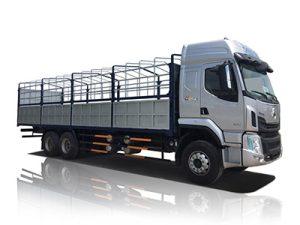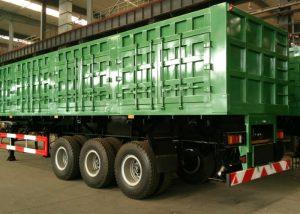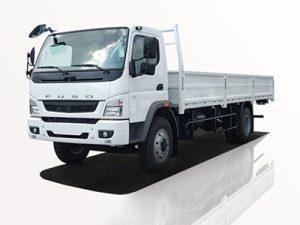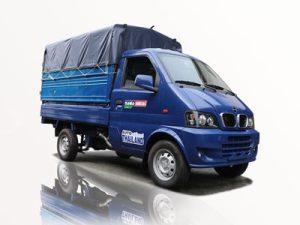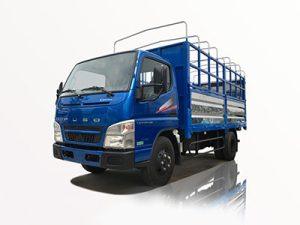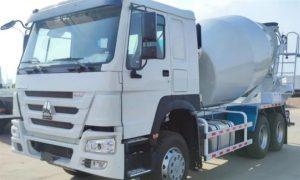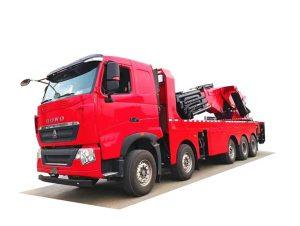Monday to Saturday - 8:00 -17:30
How Much Does a Trash Truck Weigh? A Comprehensive Guide
Understanding the weight of a trash truck is crucial for various stakeholders, including waste management companies, municipalities, and drivers. This article delves into the different aspects of trash truck weights, from types and averages to the factors affecting their weight. We will provide practical examples, tips for managing waste, and answers to common questions, all while ensuring that this resource is SEO-optimized.
What Is a Trash Truck?
A trash truck is a specialized vehicle designed primarily for collecting and transporting waste. These trucks come in various sizes and types, tailored to perform efficiently in residential, commercial, and industrial settings. The design and functionality of trash trucks vary widely, impacting their overall weight.
Types of Trash Trucks
There are several types of trash trucks, each with unique characteristics:
- Front-loaders
- Rear-loaders
- Side-loaders
- Roll-off trucks
- Compaction trucks
A Brief Overview of Trash Truck Weights
The weight of a trash truck can vary significantly based on its type, size, and the materials used in its construction. Typically, these trucks can weigh anywhere from 10,000 to 30,000 pounds, depending on their capacity and features. Below are some averages:
| Type of Truck | Average Weight (lbs) |
|---|---|
| Front-loader | 19,000 – 25,000 |
| Rear-loader | 15,000 – 25,000 |
| Side-loader | 20,000 – 30,000 |
| Roll-off truck | 18,000 – 30,000 |
| Compaction truck | 20,000 – 36,000 |
Factors Affecting Trash Truck Weight
Several factors contribute to the overall weight of a trash truck.
1. Capacity
The capacity of a trash truck directly influences its weight. Larger trucks are designed to carry more waste, which typically means they will have a heavier frame and components.
2. Construction Materials
The materials used in constructing a trash truck can vary, with steel and aluminum being the most common. Steel trucks tend to be heavier, while aluminum options are lighter but may compromise structural integrity to some degree.
3. Compaction Equipment
Trucks equipped with compaction systems add extra weight due to the additional machinery, contributing to the overall weight of the truck.
4. Additional Features
Modern trash trucks often include advanced features like automation systems and GPS, which can add weight. These technological enhancements improve efficiency but come with added heft.
Examples of Trash Truck Weights by Brand
Knowing the weight of specific trash trucks can provide more insight into their capacities and operational needs. Here are a few examples from leading manufacturers:
| Brand | Model | Weight (lbs) |
|---|---|---|
| Freightliner | MT55 | 19,000 |
| Peterbilt | 520 | 22,000 |
| Kenworth | T370 | 25,500 |
| International | HV Series | 26,000 |
| Hino | 265 | 18,500 |
Impact of Weight on Operational Efficiency
The weight of a trash truck affects numerous operational aspects:
1. Fuel Efficiency
Heavier trucks generally consume more fuel, impacting overall operational costs. Companies need to consider weight when planning routes and schedules to optimize fuel use.
2. Route Planning
Heavier trucks may have restrictions on certain roads, particularly weight-limited sites. Waste management companies must be aware of these restrictions to avoid penalties and delays.
3. Maintenance Costs
The wear and tear on heavier trucks can lead to increased maintenance costs. Planning for regular inspections and repairs is essential for, keeping trucks safe and operational.
How to Choose the Right Trash Truck for Your Needs
Selecting the right trash truck requires careful consideration of several factors:
1. Volume of Waste
Consider the average volume of waste to be collected. Heavier and larger capacity trucks suit areas with high waste output.
2. Terrain
The geography of the area may affect truck performance. Steep hills or rough terrain may require specialized trucks designed for such conditions.
3. Budget
Evaluate both the initial purchase cost and the ongoing operational costs. A more expensive but efficient truck could save money in the long run.
Practical Tips for Managing Waste Efficiently
Efficient waste management is essential for both environmental and operational effectiveness. Here are some tips to enhance waste management:
1. Regular Training for Drivers
Ensure that drivers are trained to handle various waste types and are familiar with the truck’s operational factors to improve efficiency and safety.
2. Scheduled Maintenance
Create regular maintenance schedules to prevent breakdowns and ensure optimal vehicle performance. This helps in prolonging truck longevity.
3. Community Engagement
Engage the community in recycling and less waste generation. Educating residents on proper waste disposal can significantly reduce the burden on trash collection services.
4. Utilize Technology
Employ GPS and route optimization software to enhance collection efficiency. These tools can save time and resources by finding the best routes.
Frequently Asked Questions (FAQs)
1. How much does a trash truck weigh when loaded?
A loaded trash truck can weigh between 25,000 to 50,000 pounds, depending on its size and the weight of the waste being collected.
2. What are the legal weight limits for trash trucks?
Legal weight limits can vary by state and road type but typically range up to 80,000 pounds for commercial vehicles on interstate highways.
3. How often should trash trucks be maintained?
Regular maintenance is recommended every 5,000 to 10,000 miles, but it also depends on truck usage and condition.
4. Can trash truck weight affect recycling rates?
Yes, heavier trucks may cause more wear on roads and influence route planning, potentially leading to challenges in reaching all customers efficiently and affecting recycling efforts.
5. What factors most impact the weight of a trash truck?
The primary factors include truck design, construction materials, added features, and the equipment for loading and compacting waste.
6. Are there lightweight alternatives to traditional trash trucks?
Yes, some companies manufacture lightweight trash trucks using advanced materials like composites, which can reduce weight without sacrificing strength.


